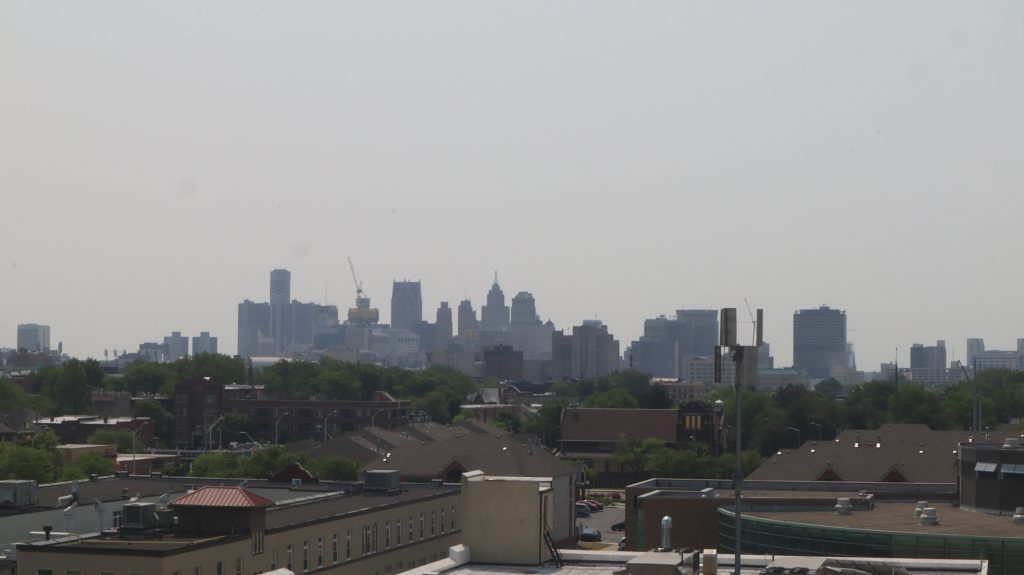Air pollution in Detroit remains high and harmful
Fine particulate matter is dangerous, tiny droplets within the air that are easy to breath in and harmful to the lungs.

A photo of the Detroit skyline's reduced visibility due to poor air quality in Detroit, Mich. on June 7, 2023.
Air pollution in Southeast Michigan has been rising due to the current Canadian wildfires. Michigan’s Department of Environment, Great Lakes and Energy (EGLE) has issued an air quality alert while conditions remain unhealthy.
Wildfires are in no way new but their impact on Metro Detroit is more prevalent because of their proximity.
“That is specifically what’s causing the high pollution levels. It’s the actual wildfire smoke itself, traveling down into our region into the surface from those fires that are up in Quebec and parts of Ontario as well,” says Stephanie Hengesbach, a meteorologist in the air quality division at EGLE. “And the closer you are to the fires, the more those wildfire plumes can really affect your region.”
The smoke not only changes air visibility but carries dangerous particles. Fine particulate matter (PM2.5) is dangerous, tiny droplets within the air that are easy to breath in and harmful to the lungs.
“It’s actually smaller than like a hair follicle. It’s that small. We can easily breathe it in. And that’s why people might not notice,” Hengesbach says. “If somebody already has lungs that are compromised, respiratory that’s compromised when they breathe, they can really start being affected.”
The levels of PM2.5 in the air are currently above the limit for the unhealthy sensitive group range. People within the sensitive range include children, pregnant women, the elderly and people with respiratory issues such as asthma, obstructive pulmonary disease, and heart and lung disease.
Doctor Jayna Gardner-Gray of Henry Ford Health in Detroit says that this year, they’ve been seeing an influx of respiratory related patients compared to 2022.
“We have people that come in and they may just be breathing a little bit faster than normal, to people who come in and their oxygen levels have plummeted and they’re requiring, you know, oxygen support with some sort of live ventilation,” says Gardner-Gray.
She urges people with a history of respiratory issues or even healthy people to go to a doctor at any signs of troubled breathing.
There are multiple ways to stay safe during the air quality alert. People within the USG should wear N95 masks while traveling outside, keep windows closed, and avoid strenuous outside exercise. Other preventative measures include running filtered air conditioning and using a purifier.
Air quality can be checked here.
While the pollution from the air quality alert cannot be stopped, future smoke related pollution can be. Campfires and bonfires should be avoided during dry seasons.
Trusted, accurate, up-to-date.
WDET strives to make our journalism accessible to everyone. As a public media institution, we maintain our journalistic integrity through independent support from readers like you. If you value WDET as your source of news, music and conversation, please make a gift today.
